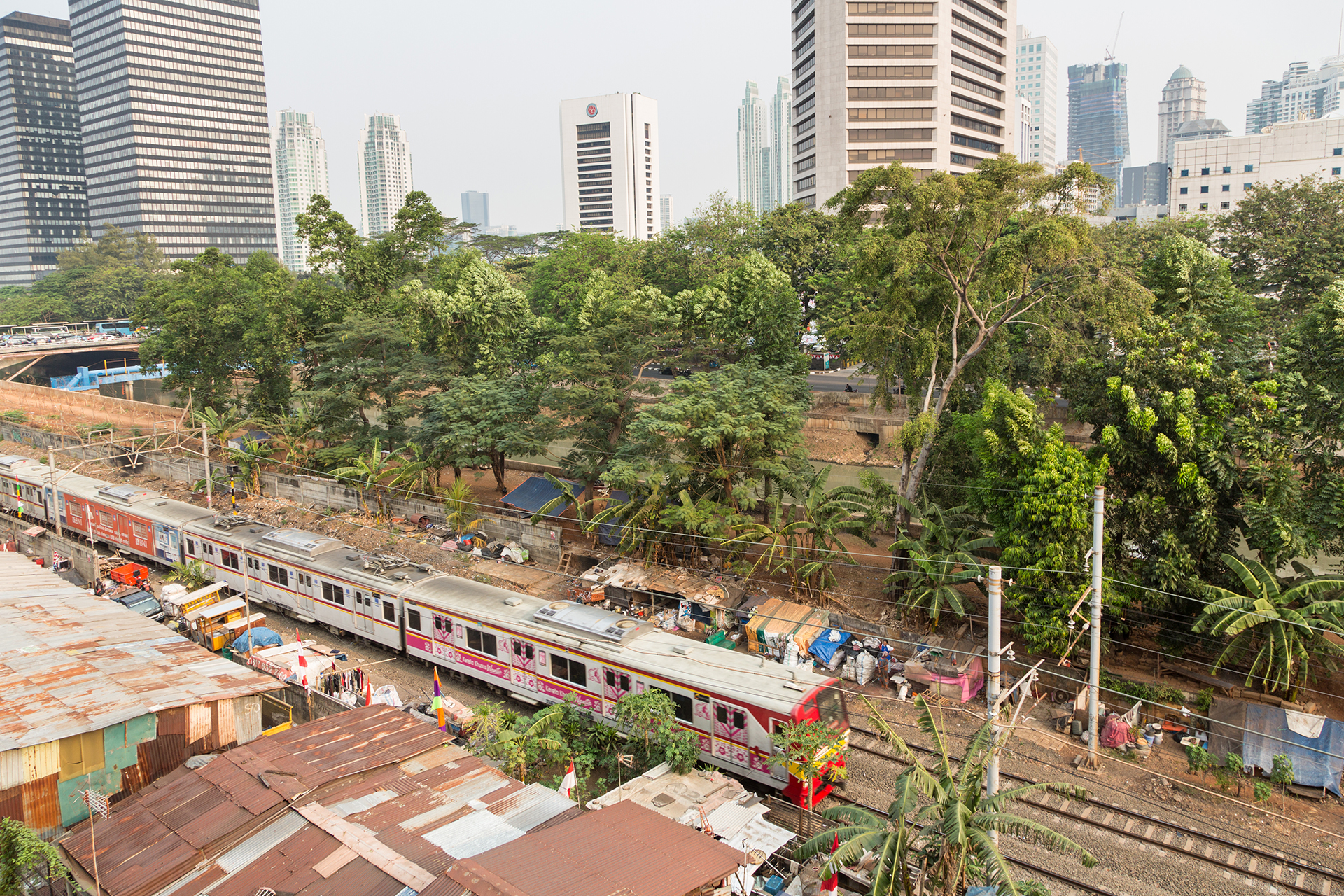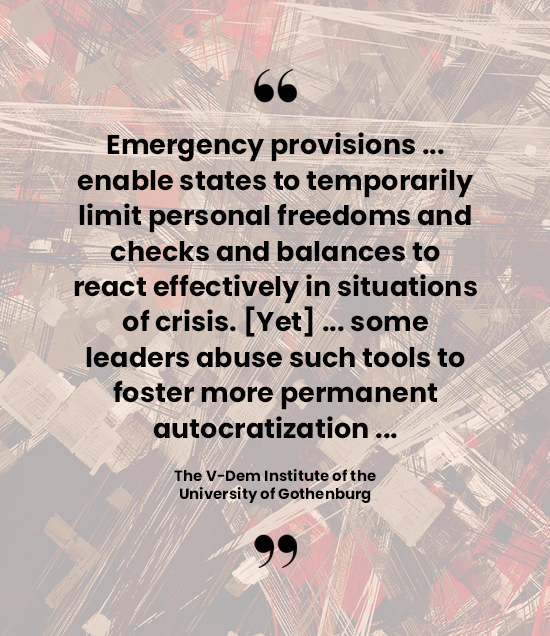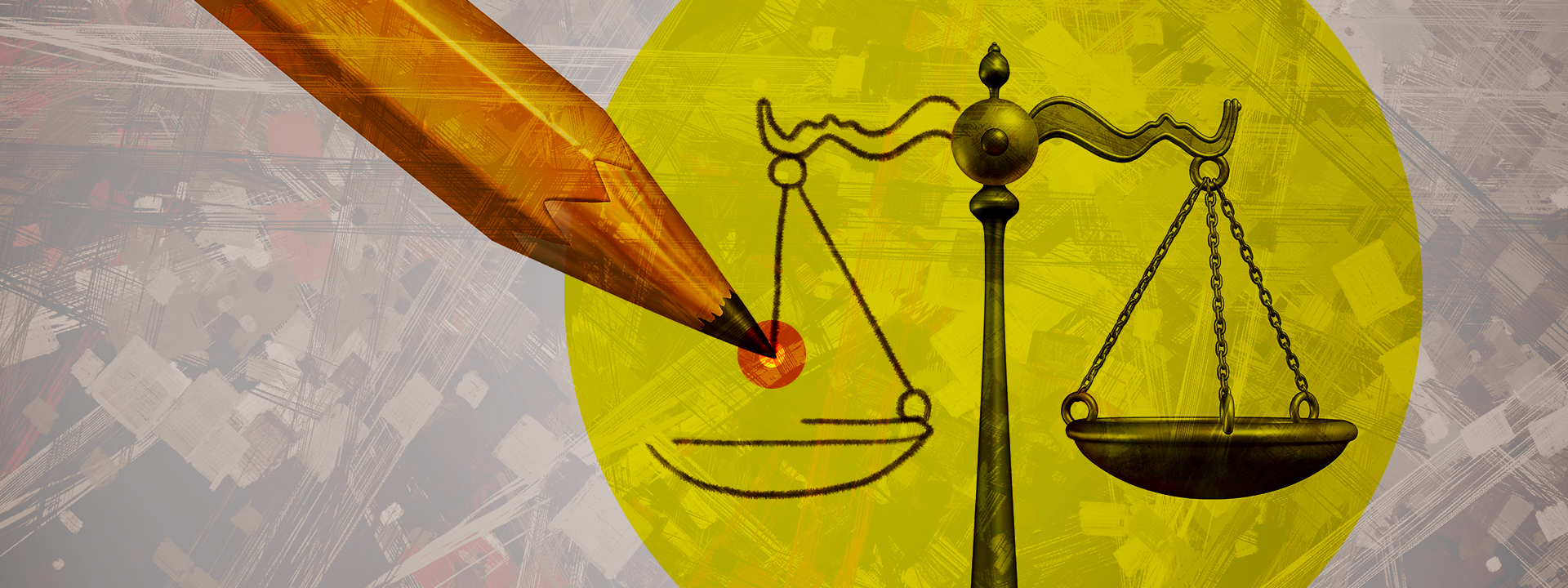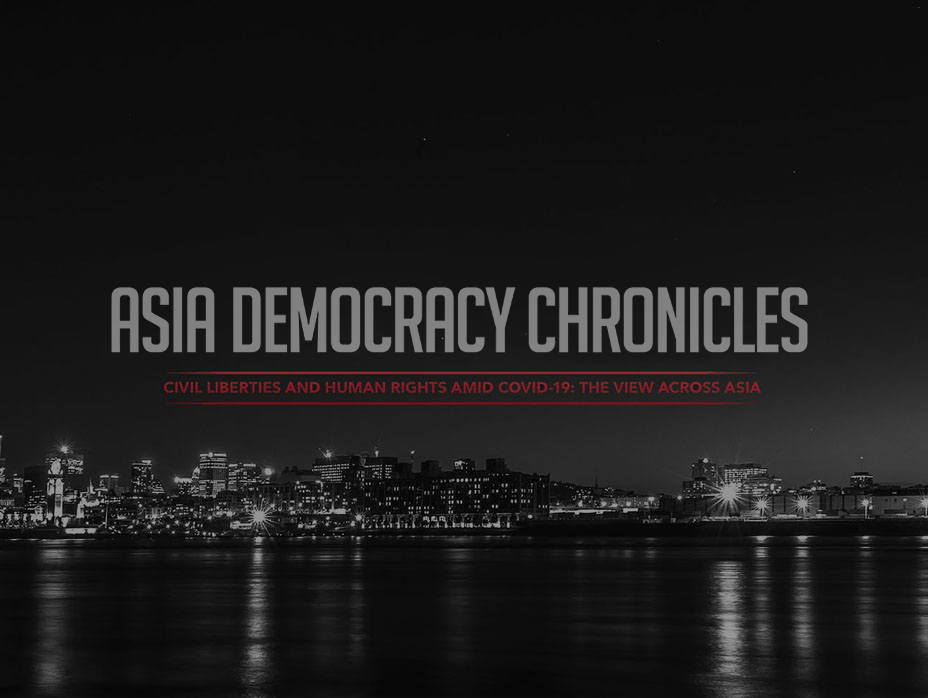The entire planet is going through two grave crises, climate change and the COVID-19 pandemic, that threaten our very survival. Both crises are closely related in that human activities generated them. The use of fossil fuels, unsustainable development and deforestation, and ecological disturbances have become important factors threatening human health. They have promoted the outbreak and spread of new viruses such as the coronavirus.
A new infectious disease was reported to the World Health Organization (WHO) on December 31, 2019. Since then, COVID-19 has led to 157.9 million confirmed cases and 3.2 million deaths globally. We also witnessed the serious political, economic, and social damage wrought by the virus.
The development, commercialization, and fair distribution of vaccines and therapeutics that can eventually combat the coronavirus face many challenges. It will take more time than expected to resolve these issues. Therefore, the damage caused by the virus is expected to increase.
Due to the global health crisis, the existing political system and society fell into a crisis. We have seen the pandemic fueling racist hatred, nationalism, and authoritarianism. The pandemic is being used by the authoritarians as an opportunity to gain greater control as democracy regressed around the world.
Democracy under attack
Let’s look at the situation of freedom, human rights, and democracy around the world amid the pandemic. The Freedom House report, The Freedom in the World 2020: A Leaderless Struggle for Democracy, states that “Democracy and pluralism are under assault. Dictators are toiling to stamp out the last vestiges of domestic dissent and spread their harmful influence to new corners of the world. At the same time, many freely elected leaders are dramatically narrowing their concerns to a blinkered interpretation of the national interest.”
The V-Dem Institute of the University of Gothenburg states that “Emergency provisions — such as the ones in place in many countries during the current COVID-19 crisis — enable states to temporarily limit personal freedoms and checks and balances to react effectively in situations of crisis. However, previous research shows that some leaders abuse such tools to foster more permanent autocratization by (a) imposing measures that are disproportionate to the severity of crises and (b) keeping emergency provisions in place once the factual situation improves.”

A commuter train goes through a shanty town right next to the business district of Jakarta, Indonesia, where poverty contrasts with the sight of sleek modern buildings in the background. With COVID-19, the shadow of social polarization and economic inequality is becoming more evident.
An unheeded warning
The WHO sounded its highest alarm on January 30, 2020 — a declaration called a “public health emergency of international concern,” reports Nature. The declaration signaled “that a pandemic might be imminent.” However, “few countries heeded the WHO’s call for testing, tracing, and social distancing to curb the coronavirus.” So many countries ignored the call. This has weakened the global response to the pandemic.
International cooperation on the prevention of the pandemic was not properly implemented, leaving each country to fend for itself and to respond to COVID-19 independently. During the pandemic, the escalating tensions between the United States and China have further intensified. This has also hindered international cooperation.
With most governments closing their borders, the movement of people between countries has dropped sharply. In an era where global networks have been strengthened more than ever due to globalization, restrictions on people’s movements due to border closures and lockdowns have kept family members apart and caused many social problems.
In addition, foreigners suddenly began to be treated as transmitters of the virus. The stigma and discrimination against foreign workers who had weak or absent political voices became increasingly severe. Xenophobia and racism spread out of control around the world.
The prolonged pandemic is leading to an unprecedented economic crisis. In particular, the suffering from COVID-19 is more serious among the economically vulnerable people: low-income families, small and medium enterprises, self-employed workers, and the like. With COVID-19, the shadow of social polarization and economic inequality is becoming more evident.
 Lessons from the West
Lessons from the West
Countless people lost their jobs and their incomes, driving commercial and residential tenants to despair as they bore the burden of paying fixed rent despite the loss of sales. As the economic recession and polarization dragged on, the socio-economically vulnerable people are the ones who are primarily driven to the crisis of survival. Meanwhile, the concentration of economic power on the top 1% is further strengthened.
Looking at the responses of the developed countries to the COVID-19 disaster, it has many implications for the policies of Asian governments that have neglected to support the socio-economically vulnerable people. Due to the default issue of commercial and residential tenants, the United States delayed eviction, the United Kingdom stopped dispossession proceedings, and Germany prevented the termination of the contract due to default of rent. Canada helped reduced the rent. Denmark directly supported the rent of stores that were prohibited to operate.
The United States is focusing on providing support to workers who have been fired or taken a leave of absence due to the COVID-19 crisis through the unemployment insurance system. For the first time in history, Germany abandoned the tradition of balanced finances and took expansionary fiscal policies including bold labor market policies and economic stimulus measures. Meanwhile, the Organisation for Economic Co-operation and Development has emphasized that the social economy — such as consumer’s cooperatives, fair trade, and the organic farming movement — has particular implications for addressing the COVID-19 crisis.
Long-neglected injustices
UN Secretary-General Antonio Guterres released a message on the International Day of Democracy in September 15, 2020. It states, “As the world confronts COVID-19, democracy is crucial in ensuring the free flow of information, participation in decision-making, and accountability for the response to the pandemic. The crisis is also highlighting — and aggravating — long-neglected injustices, from inadequate health systems to social protection gaps, digital divides, and unequal access to education; from environmental degradation to racial discrimination and violence against women. Along with the profound human toll, these inequalities are themselves threats to democracy.”
Without efforts to fully reflect on and overcome these social problems, the post-COVID-19 era could possibly further strengthen the existing unfair social structure. This would led to another crisis. The rapid deepening of social polarization in the global neoliberal trend is worsening socio-economic democratization. The freedom, equality, justice, inclusion, and solidarity must be transformed from the formal to the substantial.
The efforts to lessen inequality — in other words, to establish a new inclusive socio-economic order — can be given stronger justification in the face of the COVID-19 crisis. In fact, democracy around the world has stopped progressing toward a procedural democracy called political democratization. But now we need to achieve a more complete democracy by achieving socio-economic democratization, which is a substantial democracy.
Stronger safety nets
So how can socio-economic democratization be achieved beyond political democratization? One of the main measures is economic democratization. This is to establish a fair order among the economic actors in the market where large corporations are currently exerting excessive influence. Another plan is to strengthen universal welfare policy to resolve polarization. Through this, there is a necessity to build a more equal society by alleviating the inequality in the market.
To this end, it is inevitable to strengthen social safety nets. In addition, the expansion of the public medical system is required because the social need to respond to infectious diseases will continue in the future. At the same time, the transformation of all socio-economic areas such as social insurance, employment measures, financial relief, and tax system is required.
In order to resolve socio-economic polarization, it is necessary to transform an economic system centered on large corporations into an economic structure in which small and medium-sized businesses can thrive. If the socio-economic policy for the top 1% of the rich is continued, the 99% will show their anger and dissatisfaction with an unjust system.

At the core of a new socio-economic system are the values of freedom, equality, justice, inclusion, and solidarity.
The rift among the economic classes would hinder the effective response to a crisis like the present pandemic, which could happen again given the global environmental crisis. It would be counter-productive at a time when cooperation and solidarity are essential to tackle the health and planetary crises.
The COVID-19 crisis will affect the basic principles of the composition of the living world in modern society. We need to reform the unjust socio-economic system before it’s too late.
The best way to respond to a long-term crisis is a mature democracy. Only societies in which a majority of people come together and draw conclusion with sufficient discussion can have resilience.
In general, much emphasis is placed on the democratization of the political procedure. However now, it is necessary to upgrade to the socio-economic democratization through cultivation of citizenship that can yield personal interests and resolution of income inequality. At the core of a new socio-economic system are the values of freedom, equality, justice, inclusion, and solidarity.
In order to cope with the challenges of the times, it is necessary for various social actors to improve the composition of the entire civil society which accompany the expansion of publicness and the qualitative deepening of democracy by strengthening the competence of citizens. It is a time when international cooperation and solidarity are desperately needed more than ever, but unfortunately the barriers and exclusion not only between countries but also within each country are rising. We have to strengthen democratic citizenship education about solidarity, mutual understanding, and consideration of the global community. ●
Dr. Hyung-sik Shin is Adjunct Professor of Division of International & Area Studies of Pukyong National University in Busan, South Korea, and President of the Institute for Popular Sovereignty in Seoul, Korea. He was previously the Director of the Planning and Coordination Department at the Korea Democracy Foundation.



















